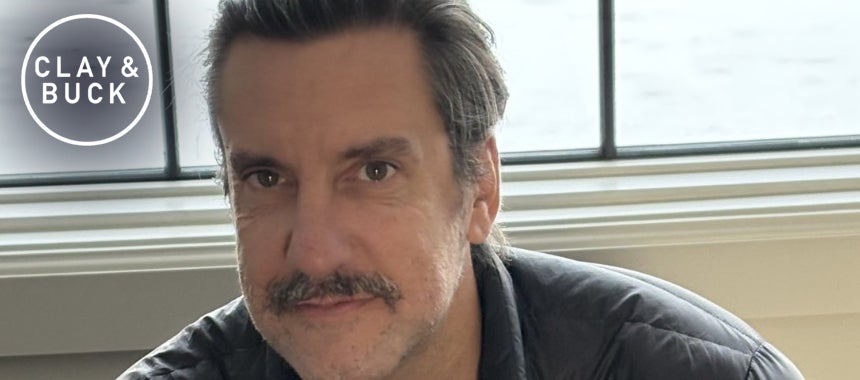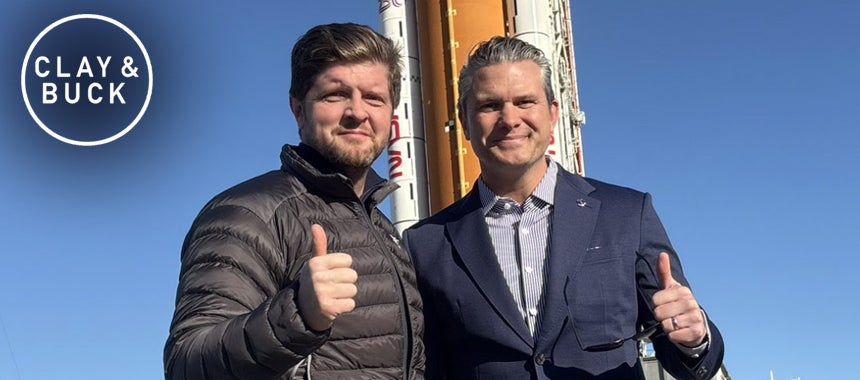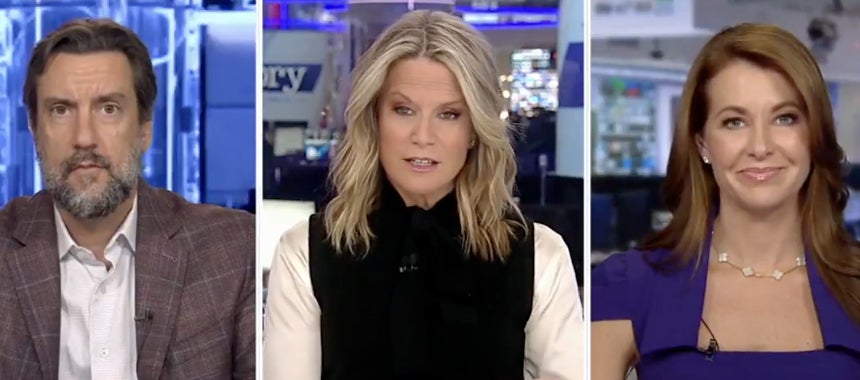Forensic Expert Joseph Scott Morgan on Arrest in Idaho Murders
3 Jan 2023
BUCK: We wanted to update you with the latest on this case of the four college students who were brutally murdered with a knife in Moscow, Idaho. We know that there is an individual in custody. We want to know how were they able to find him — to the best of our ability to figure this out — and what is the, at this stage, gravity of the evidence against him, the totality of it against him? Joseph Scott Morgan is with us now. He’s a distinguished scholar of applied forensics. Joseph, appreciate you joining us once again. I know you got a chance to speak to Clay. Tell everybody where this stands right now. How were they able to track this individual down based on the news reports, based on what we’ve seen?
MORGAN: Hey, fellas. How are y’all? Happy New Year. Thanks for having me back. You know that the reality is, is that they have some type of physical evidence at this point in time, that’s going to be a biological tie back on the subject. My understanding, at this point, there’s been a lot of back and forth relative to DNA evidence. We don’t know exactly how they acquired it. We’ve heard that the scene was just saturated in blood. So I think that that’s kind of a starting point for us. We don’t know at this point, obviously, if he was injured in this assault.
Remember, this is a sharp-edged weapon that this fella was using. And many times, in my experience, at least, you have these events where subjects will cut themselves, and you’ll have this kind of what’s referred to as co-mingling of blood. And if that’s the case, they would have had to have separated out all of the DNA profiles. You know, obviously you’ve got known profiles. You’ve got these four victims, the four young people that were killed. You know now there were the two down in the basement. I’m sure that they probably did cheek swabs or mucosal swabs on them.
They’d be eliminated any of their intimate partners. And then, you know what? It was unknown from within the house. At that point in time, it gets a bit more complicated. They have to try to suss that out and try to understand who this unknown is and talk around the campfire — at least at this point in time — that we’re kind of hearing is that they may have used genetic genealogy here, which, you know, they’re looking for common ancestors, essentially somebody that has submitted a DNA sample to one of these companies to try to figure out their past.
BUCK: Can I jump in just to make sure that I’m clear?
MORGAN: Yeah.
BUCK: So you’re saying then, Joseph, it is possible. I know you’re not saying that, but you’ve heard that the break in this case may be related to somebody doing Ancestry.com, 23andMe, etc., and they’re able to track from that. Is that the theory?
No he wasn’t,There may have been discussions related forensics,he may have even “worked” a mock crime scene on campus at DeSales. He was studying Criminal Justice/Criminology. Stop conflating the study of criminal behavior with forensic science @DailyMail https://t.co/usaTHtvIVg
— JoScot (@medcolegaldeath) January 2, 2023
MORGAN: Yeah. Yeah, I think that’s the drift right now. You know, there are those cases that are out there, because this guy is not… The subject, the accused, is not in a database. He’s not in CODIS. You know, he’s not a prior sex offender or anything like that. So you didn’t have a profile on board. So you start with an unknown at this point in time. I thought — I think many of us were thinking in my field, at least, you know, we’re kind of kicking around some of my colleagues and, you know, kind of thinking about this — sometimes you’ll have these cases where, you know, they’ll put a team on you and they’re watching you; they suspect that you might be this person.
They have unknown DNA at the scene and then you leave a cup laying around or straw or a napkin, you know, and — you know, guys — once you throw that away, you throw in the trash, it’s no longer yours. They collect it and they run it. But, you know, it just seems like they’re sitting on top of this. And they probably have known for a while, I would imagine. But they have a lot… This biological material is very, very dense. So it took them a bit of time to kind of work out the profiles in this. But it would seem this, along with some other forensic evidence that’s going to come to light, I think we’re going to hear about it in the next couple of days.
CLAY: So, first of all, thanks for coming on again. We got great feedback. Joseph Scott Morgan When you see it appears that this guy, this suspect, was basically getting a Ph.D. in forensics and therefore may have been almost training to be a serial killer —
MORGAN: Yeah.
 CLAY: — or have been driven into a life of potential crime based on this attraction to a dark side in some way. Would that help to explain maybe the difficulties that have initially ensued that this guy was basically aware of some of the criminal procedures that would be undertaken? In other words, for people, like in your world of forensics, you probably would be way better at committing a crime because you know how people have gotten caught.
CLAY: — or have been driven into a life of potential crime based on this attraction to a dark side in some way. Would that help to explain maybe the difficulties that have initially ensued that this guy was basically aware of some of the criminal procedures that would be undertaken? In other words, for people, like in your world of forensics, you probably would be way better at committing a crime because you know how people have gotten caught.
MORGAN: Right.
CLAY: Does it surprise you that the guy would maybe be coming out of this study in this field — for people who don’t know, he’s purportedly, that suspect, a Washington State grad student basically getting a doctorate in criminology and forensics.
MORGAN: Yeah. Well, yeah. Let me draw a fine line here because it’s in criminology and, you know, there’s this idea that’s kind of floating around out there in criminology, forensics people are saying we’re not at all. And, you know, he’s more of a behaviorist.
CLAY: Okay.
MORGAN: That’s kind of what he was studying when he was at DeSales, you know? Yeah. He knows something about behavior. But keep in mind, you know, in all of these academic institutions like this, they’re a theoretical environment. Okay? In forensics, plot should be applied. You know, even the university I teach at, we teach applied forensics and that is, you know, you go from A to Z in a process, a scene. He does not have that kind of background. Now, he has a morbid curiosity, I think, in criminal behavior. The criminal mind always sorts things.
After he’s watched by playing a television, he’s probably fascinated by all of this, and how bad guys minds kind of work. But he does not know the nuts and bolts of forensic science. And, you know, if he went in, prepare to do something — if this subject went in, the accused went in to do something — he’s always going to miss something. Trust me. Because, again, there’s so much physical evidence here and we have ways in my field, my colleagues, of kind of rooting out at a molecular level these things that are specific tiebacks to any individual that was in that environment.
CLAY: Basically you told us — yeah, I’m sorry to cut you off. But you were like, any time you do anything, you leave a trace behind. That’s kind of the bible of forensics, right?
MORGAN: Right. Right. Yeah. Yeah. Yeah.
 CLAY: So even if you were a genius criminal, it’s impossible to have a quote unquote perfect crime scene. Right, because there’s always something that’s being left behind. Is that accurate?
CLAY: So even if you were a genius criminal, it’s impossible to have a quote unquote perfect crime scene. Right, because there’s always something that’s being left behind. Is that accurate?
MORGAN: Yes. Yes, it is. You know, there is no perfect crime. There is just absolutely not, because there’s always a human factor in it. And it might be our own, you know, self-love — our desire, our lack of focus — that’s going to trip us up. Science will always… (laughs) Science will always catch you in the end, because it’s an absolute when you begin to talk about numbers and all these things. It’s not a theoretical kind of construct. We’re basing things on numbers and “Do they add up?” And, you know, when you start to get out into the areas of DNA, you know, we’re talking about one in a million, one in 10 billion, you know, depending upon what kind of sample you have that has been run.
This is not even… It’s more accurate than even fingerprints, if you will, and certainly back in the days when we were just using, relying on things like blood typing — you know, the rare blood is like a neg. I think that’s like one in 240 people. You know, now you’re into the one-in-some odd billion. Okay? So that kind of… When you start going against those numbers, and you look at that and the ability of the people that work in the field now, it’s a tough mountain to climb, guys.
BUCK: Joseph Scott Morgan, distinguished scholar of applied forensics. You can listen to his podcast on iHeart, the Body Bags podcast. Joseph, as this continues to play out, we’ll have you back. Thanks for being with us.
MORGAN: Please do, guys. Happy New Year to everybody.
BUCK: Yes, sir. You too.
Recent Stories
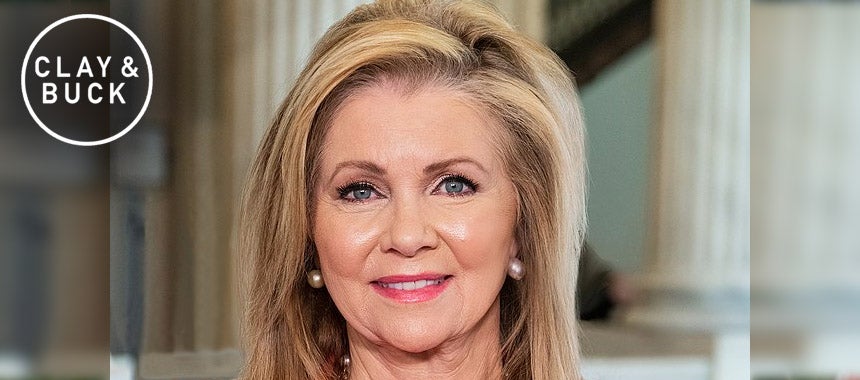
Senator Marsha Blackburn Blasts Nashville Electric Service's Response to the Storm
Nashville's senator is none too pleased with the power company serving Nashville.
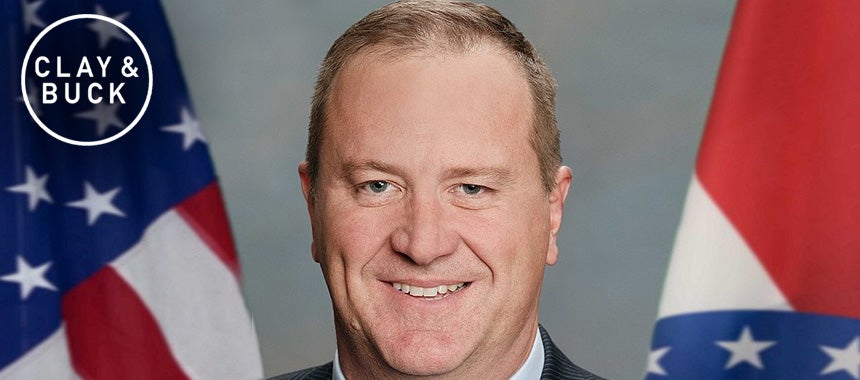
Sen. Eric Schmitt Talks Shutdown, ICE, NIL -- and the Super Bowl
Senator Schmitt explains why Dems are fighting ICE so hard -- and much more.




